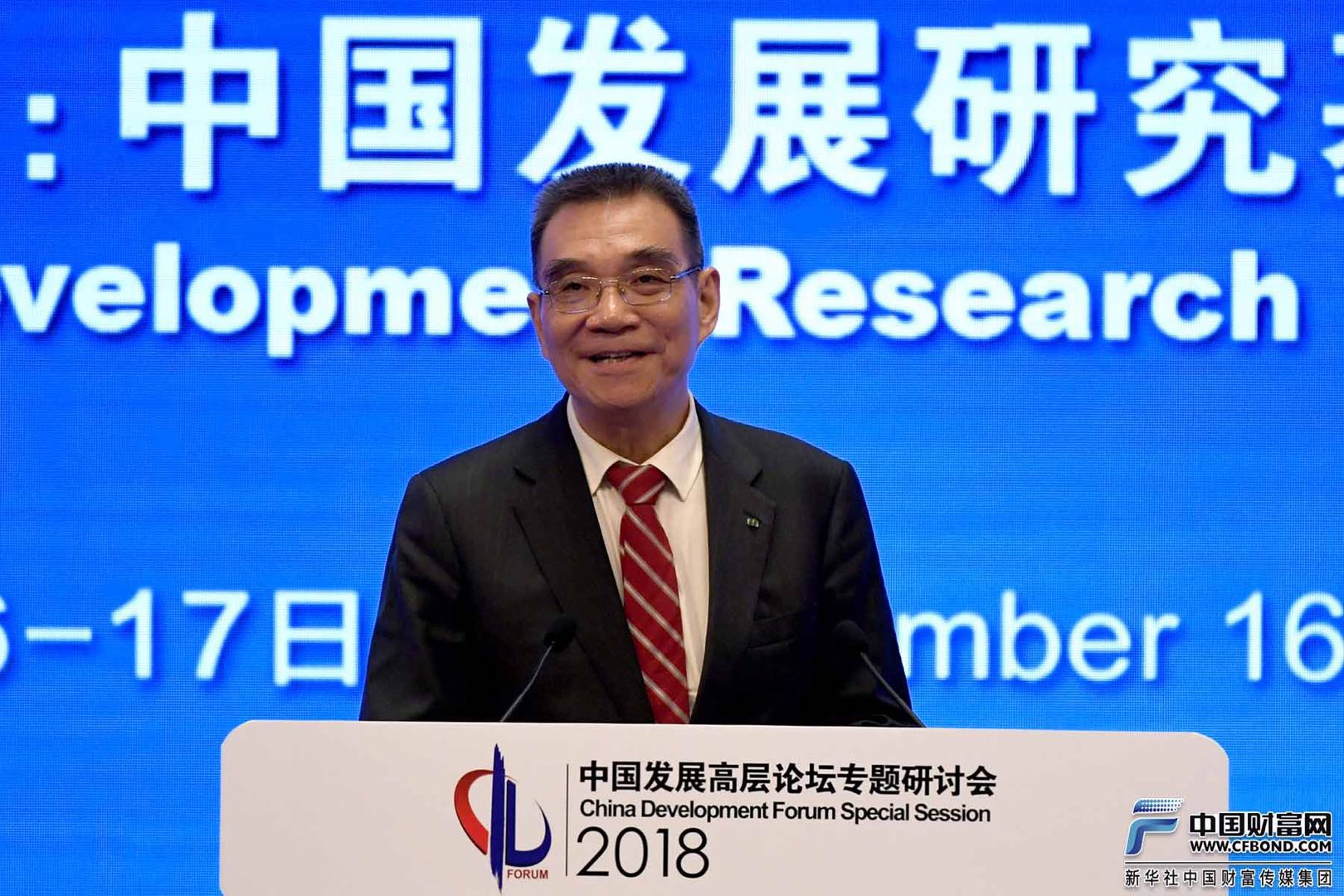
By Yin Lei
China has the potential for sustaining robust economic growth for the next two decades, said Justin Yifu Lin, honorary dean of the National School of Development, Peking University, at the 2018 China Development Forum Special Session on Sunday.
This two-day event in Beijing, witnessing the presence of nearly 800 Chinese and foreign entrepreneurs, experts and government officials, featured multiple symposiums on how China can proceed with its reform and opening-up.

Justin Yifu Lin speaks at the 2018 China Development Forum Special Session on Sunday. (Photo by Li Lin/China Fortune Media)
In a speech at the opening ceremony, Lin shared his views on China's development in the new era.
China's reform should be an ongoing process, he said. Over the years, its gradual reform had not only avoided upheavals as seen in the Central and Eastern European nations and the former Soviet Union but also stabilized its economy and generated growth. As it went through this period of economic transformation, the new issues that came up were later addressed with new reform measures. China must hold the stance that reform is an ongoing process.
Lin believed China's economy will boast great growth potential as the country keeps up its innovations.
China's late-mover advantage, as decided by its income gap with high-income countries, gives it the potential to stage fast economic growth for the next 20 years, he predicted. China's per capita GDP in 2008 was 21 percent of America's, roughly the same ratio Japan and Singapore had before their economy saw another two decades of 8 percent to 9 percent economic growth.
In the industry 4.0 sectors, where the rapid technological progress relies heavily on talents, China has a considerable advantage as a country rich in human resources. Its performances in the new economy sectors are also powerful. Additionally, its growth potential is supported by the Made in China 2025 plan that helps cope with externalities at the international stage.
The economy of China and the U.S. are complimentary, and trade between them brings win-win results, Lin said.
In their bilateral trade, China provides America with not only low-cost consumer goods and intermediate goods but also a vast market for its high value-added services. Even when the per capita income of China catches up with those of high-income countries like Japan and Germany, the China-U.S trade is still good for each other as it allows them to focus on their respective comparative advantages.
Lin pointed out that China needs to assume more responsibilities for development across the world.
As the largest trading nation and the second largest economy of the world, China needs to help the economic growth of other developing countries. About 85 million jobs, estimated to be outsourced from China's manufacturing sectors, can go to these countries to help shore up their manufacturing capacities.
In their pursuit of development, these countries face some bottlenecks, the biggest of which is insufficient infrastructure. The Belt and Road Initiative addresses such challenges. At the Forum on China-Africa Cooperation just concluded in Beijing early this month, the importance of infrastructure development was reiterated, he said.
